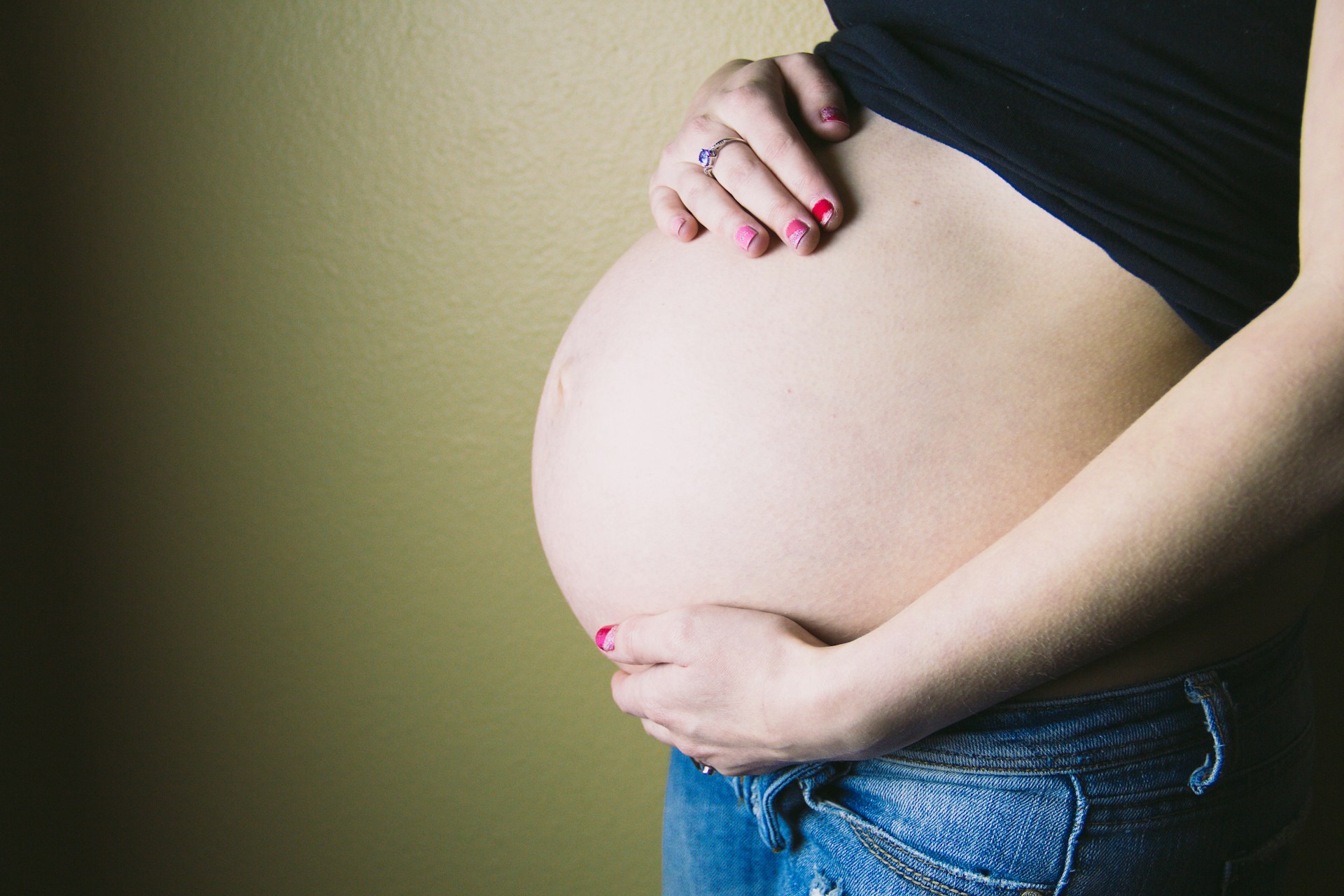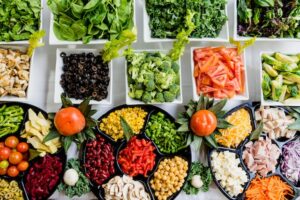Thank you for continuing to read and join me in the second part of my post on ’10 Tips for Healthy Eating During Pregnancy’! I appreciate your interest in learning more about how to properly take care of yourself during this special stage of your life. In the first part, we explored five fundamental tips for optimal nutrition during pregnancy, addressing key aspects such as folic acid intake, hydration, and the incorporation of nutrient-rich foods.
Now, I will share with you the remaining five tips, which will complement your knowledge on how to maintain a healthy and balanced diet for you and your developing baby. These additional tips are intended to provide you with more practical and useful information that will help you navigate this exciting journey of motherhood with confidence and peace of mind.
As we move forward to this second part, I invite you to keep reading and discover how you can optimize your diet during pregnancy to promote your health and the proper development of your baby. Let’s continue together on this journey towards a healthy and happy motherhood!
If you haven’t seen part 1, click here.
Table of Contents
6. Prioritize fiber-rich foods during pregnancy
Prioritizing fiber-rich foods is essential for maintaining healthy digestion and preventing common issues like constipation. Fiber is a type of carbohydrate that is not digested in the human digestive tract and plays a crucial role in regulating bowel movements as well as stabilizing blood sugar levels.
Including a variety of fiber-rich foods in the daily diet can help alleviate constipation, a common discomfort during pregnancy due to hormonal changes and increased pressure on the digestive organs. Fruits, vegetables, legumes, whole grains, and seeds are excellent sources of fiber and should be an integral part of the diet during this crucial stage.
Fruits such as apples, pears, berries, and oranges are rich in soluble fiber, which dissolves in water and forms a gel in the digestive tract, helping to soften stools and facilitate their passage. Leafy green vegetables like spinach, kale, and lettuce are also excellent sources of fiber, in addition to providing a variety of vitamins and minerals essential for fetal development.
Likewise, legumes such as beans, lentils, and chickpeas are rich in both soluble and insoluble fiber, making them an ideal choice for promoting intestinal regularity and maintaining satiety between meals. Whole grains such as oats, brown rice, and quinoa are also an excellent source of fiber and essential nutrients like iron and folic acid.
By prioritizing fiber-rich foods during pregnancy, digestive health is promoted, and common issues like constipation and bloating are prevented. Additionally, a fiber-rich diet contributes to maintaining healthy blood sugar levels and can help control weight gain during pregnancy.
7. Avoid raw or undercooked foods
It is important to avoid consuming raw or undercooked foods as they can pose a risk of food poisoning and transmit certain harmful bacteria and parasites to both the mother and the developing fetus. Some raw or undercooked foods may contain pathogens such as Listeria monocytogenes bacteria, salmonella, toxoplasmosis, and the Toxoplasma gondii parasite, which can cause serious complications during pregnancy.
Among the foods to be avoided are raw or undercooked meats such as sushi, carpaccio, and tartare, as well as raw or undercooked seafood such as ceviche and oysters. These foods may contain bacteria and parasites that can cause severe gastrointestinal infections, which can be especially dangerous during pregnancy due to changes in the woman’s immune and hormonal systems.
It is of utmost importance to avoid consuming raw or undercooked eggs as they may contain salmonella, a bacterium that can cause symptoms such as fever, nausea, vomiting, and diarrhea. Opt for cooking eggs until the white and yolk are firm to reduce the risk of food poisoning.
Unpasteurized dairy products such as fresh cheese, raw milk, and homemade ice cream should also be avoided during pregnancy as they may contain bacteria such as Listeria monocytogenes, which can cause listeriosis, a serious infection that can endanger the life of the fetus.
Additionally, it is important to thoroughly wash fruits and vegetables before consuming them to remove any bacteria or pesticide residue. Avoid consuming raw sprouts, such as alfalfa and soybean sprouts, as they may contain harmful bacteria. Opt for fully cooking foods to reduce the risk of food poisoning and protect the health of both the mother and the developing baby.
8. Limit caffeine intake and avoid alcohol
It is essential to limit caffeine intake and completely avoid alcohol consumption to protect the health of both the mother and the developing baby. Caffeine is a stimulant that crosses the placenta and can affect the fetus’s heart rate and metabolism, as well as increase the risk of premature birth, low birth weight, and miscarriage. Therefore, it is recommended to limit caffeine intake to less than 200 milligrams per day, which is roughly equivalent to a standard cup of coffee or two cups of tea.
Alcohol, on the other hand, is extremely harmful during pregnancy and has been linked to a range of serious complications, such as fetal alcohol syndrome (FAS), which can cause growth delays, birth defects, intellectual disabilities, and behavioral problems in the baby. Even moderate amounts of alcohol can be harmful, so it is advisable to avoid it completely during pregnancy.
It is important to note that alcohol easily passes through the placenta and can affect the developing fetus at any stage of pregnancy. There is no safe level of alcohol consumption during pregnancy, so total abstinence is the safest option. If you have difficulty abstaining from alcohol, seek help and support from a healthcare professional or a specialized support group for alcoholism treatment during pregnancy.
It is crucial to note that some over-the-counter products and medications may contain caffeine or alcohol, so it is essential to read food and medication labels carefully and avoid those containing these ingredients. By limiting caffeine intake and avoiding alcohol completely, you can protect the health of both your baby and yourself during pregnancy.
9. Consult with a healthcare professional
Consulting with a healthcare professional during pregnancy is essential to ensure that both the mother and the baby receive adequate care and can address any challenges that may arise during this crucial period. An obstetrician or a gynecologist specializing in obstetrics can provide personalized guidance on nutrition during pregnancy, as well as monitor the progress of the pregnancy and detect any potential problems early on.
During prenatal visits, the doctor can assess the health status of the mother and the baby, conduct screening tests, and offer specific recommendations on diet and lifestyle. They may also prescribe nutritional supplements, such as prenatal vitamins containing folic acid, iron, and other essential nutrients to support fetal development.
Additionally, a registered dietitian can offer specialized nutrition counseling during pregnancy and help design a meal plan that meets the individual nutritional needs of the mother and the baby. They can provide specific recommendations on how to increase the intake of certain nutrients, such as folic acid, iron, calcium, and protein, and provide strategies to address any nutritional issues or dietary concerns that may arise during pregnancy.
It is important to be honest and open with the healthcare professional about any concerns or symptoms you experience during pregnancy, as they can offer guidance and support to help you make informed decisions about your health and that of your baby. Furthermore, if you are considering making significant changes to your diet or lifestyle during pregnancy, it is crucial to discuss them with your doctor before making them to ensure they are safe and suitable for you and your baby.
10. Listen to your body
Listening to your body during pregnancy is essential to maintain a healthy balance between your body’s needs and the demands of gestating another human being. During this period of physical and emotional changes, it is essential to pay attention to the signals your body sends you and respond to them appropriately.
One of the most important signals your body can send you during pregnancy is the need for rest. Pregnancy can be exhausting, especially during the first trimester when your body is adapting to hormonal changes. Listen to your body when it asks for rest and make sure to take short naps during the day if necessary. Prioritizing rest will help you maintain more stable energy levels and reduce fatigue.
Additionally, paying attention to cravings and food aversions can provide important clues about your body’s nutritional needs. If you feel a strong desire to eat certain foods, it may be a sign that your body needs specific nutrients that those foods can provide. On the other hand, if you experience aversions to certain foods, your body may be trying to protect you from potential toxins or irritants. It is important to respect these signals and seek out healthy alternatives to meet your nutritional needs.
Listening to your body also involves paying attention to feelings of discomfort or discomfort. If you experience symptoms such as nausea, heartburn, or pain, it is important not to ignore them and seek medical help if necessary. Your body is trying to communicate that something is not right, and it is important to address those issues in a timely manner to ensure your well-being and that of your baby.
During pregnancy, listening to your body involves practicing self-care and self-love. This may include activities such as taking relaxing baths, practicing gentle exercises like prenatal yoga, and dedicating time to activities that bring you joy and tranquility. Pregnancy is a unique time in a woman’s life, and it is important to take care of yourself both physically and emotionally to fully enjoy this experience.
Conclusion
In conclusion, a healthy diet during pregnancy is essential for the well-being of both the mother and the developing baby. Each of the ten tips provided offers practical guidelines to ensure that all nutritional needs are met during this crucial stage of life. Incorporating foods rich in folic acid and iron, maintaining adequate calorie intake, prioritizing hydration, including foods rich in calcium and vitamin D, consuming healthy fats in moderation, prioritizing fiber-rich foods, avoiding raw or undercooked foods, limiting caffeine and alcohol consumption, consulting with a healthcare professional, and listening carefully to the body’s signals are all vital aspects for a healthy pregnancy and optimal baby development.
By following these tips and paying attention to the changing needs of the body during pregnancy, women can promote their own health and that of their baby, laying the foundation for a healthy start to life. Additionally, it is important to remember that each pregnancy is unique and nutritional needs may vary from one woman to another. Therefore, it is always advisable to consult with a healthcare professional for personalized guidance and ensure that all individual needs are met.
Ultimately, pregnancy is a time of celebration and preparation for the arrival of a new family member. By prioritizing a healthy and balanced diet, pregnant women can feel confident and empowered as they nurture and care for themselves and their developing babies. This period of life is a unique opportunity to strengthen the mother-child bond and lay the groundwork for a healthy and happy life together.




